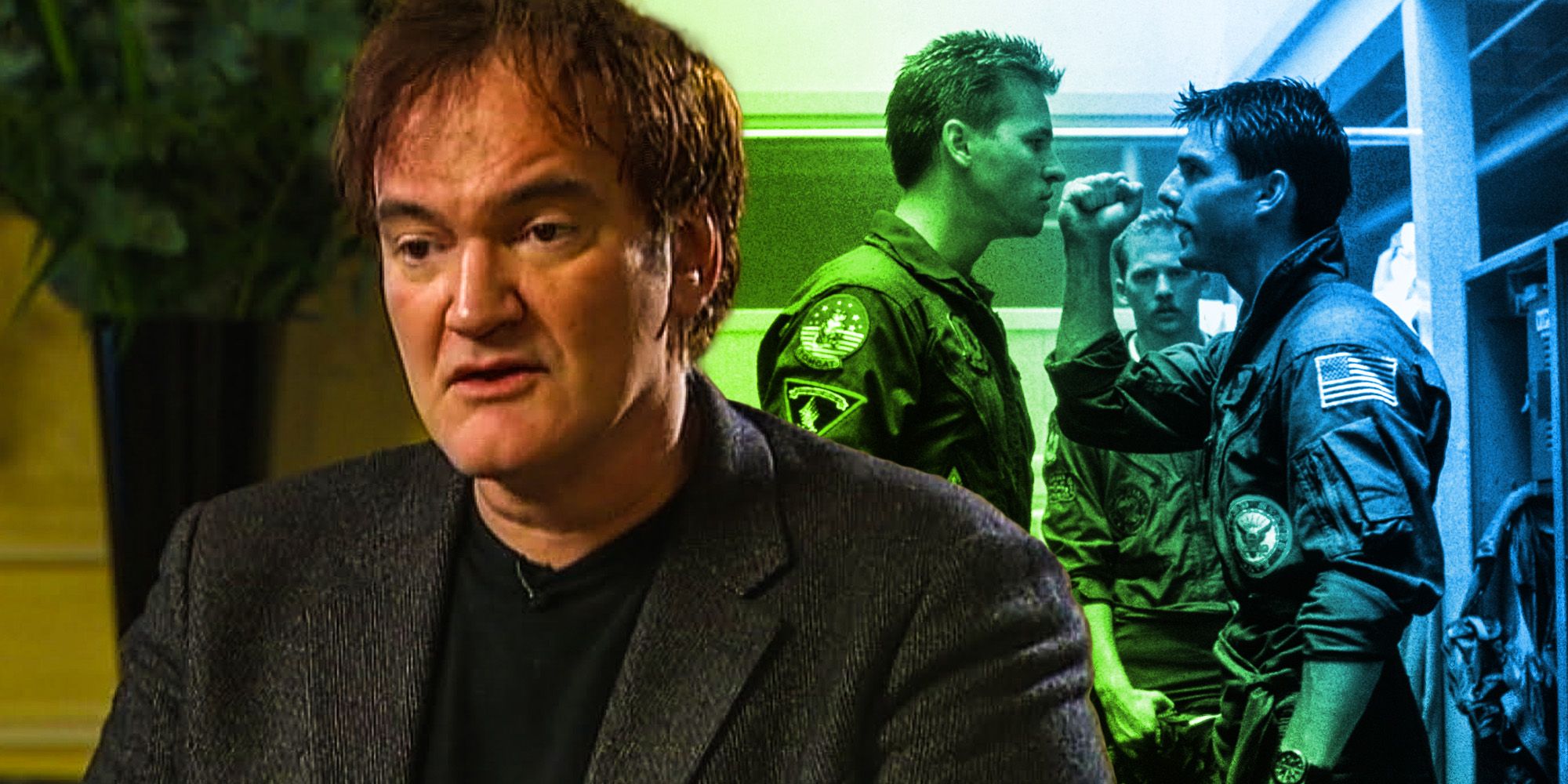Top Gun producer Jerry Bruckheimer was recently asked about Quentin Tarantino’s famous take on the movie, and his answer embodied a constructive approach to movie interpretation beneficial to fans and critics alike. Released in 1986, Top Gun was a huge hit for director/action cinema legend Tony Scott and made a household name of its young star, Tom Cruise. Top Gun told the simple tale of Maverick, a test pilot with no fear and a "need for speed," as well as an oversized ego that often put himself and his colleagues in peril.
The blockbuster was a fun summer movie and a story about passion, obsession, and their human cost. It successfully juggled these heavier themes along with funny banter and fast-paced action sequences. Top Gun is also, famously, a very gay movie, according to many critics, scholars, and fans. Granted, the movie’s hero does have a female love interest in the form of Kelly McGillis' Charlie (although she will not be returning for the upcoming Top Gun: Maverick).
However, the camera’s focus on glistening male bodies, the intense emotional bonds between the male leads, and the general centering of male homosocial experiences in the plot have led a lot of commentators to consider Top Gun a queer story. One famous fan who claimed as much is Quentin Tarantino’s character Sid from 1994 drama Sleep With Me. In a famous in-character rant, Tarantino outlines the details of the movie's homoerotic elements, and 35 years after its original release, producer Jerry Bruckheimer has finally responded. Despite the producer’s bombastic reputation, his comments are a mature, thoughtful response that displays an open-minded approach to artistic interpretation.
In an interview with Vulture looking back on the original Top Gun, Bruckheimer responded to a question about Tarantino’s assessment with a measured comment on the importance of keeping art open to interpretation. Per Bruckheimer: “When you make a movie, people can interpret it in any way they want and see something in it that the filmmakers had no idea they were tapping… There’s a relevance to (people’s theories) because people believe it.” Bruckheimer concluded his comments on the controversial reading by adding that “coming from Quentin, it’s a compliment,” and the producer also noted the Reservoir Dogs director was at the time a close friend of, and frequent collaborator with, the late Top Gun director Tony Scott.
The comments embody a more thoughtful approach to the issue of Top Gun’s subtext than some critics have offered the years, with some reviews or retrospectives treating the presence of homoerotic elements as inherently funny or an embarrassing reflection on the filmmakers. Bruckheimer’s admission the subtext is legitimate if viewers see value in it shows that Top Gun can be interpreted as a queer story even if this wasn’t the express intention of the filmmakers, or more broadly, that art is open to interpretation outside whatever reading the creators say is “correct”. It’s positive to see an industry legend validating a reading that remains contentious among the film’s fandom, particularly when Jennifer Connelly’s casting as Cruise’s Maverick love interest means the movies are unlikely to canonically suggest a more-than-platonic relationship between Maverick and Iceman. In the years since both Tarantino’s rant and Top Gun’s release, gay stories have become more visible in the mainstream, so it is good to see the movie’s producer avoid shutting down a popular interpretation of the beloved blockbuster.


